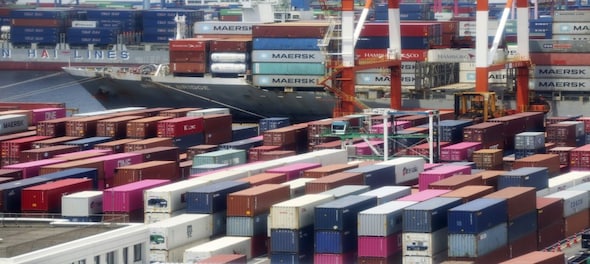
Custom delays are troubling various sectors yet again. This time, the pain point is the new compliance norm through which duty benefits can be claimed under various Free Trade Agreements, where a company needs to justify the benefit claim keeping the rules of origin in mind.
According to sources, "Around 600 Japanese and over 100 companies from ASEAN nations have raised concerns with the Indian government and customs authorities over the challenges they are facing at various ports to get goods cleared with duty benefits."
In September, customs authorities started sensitising companies about the new rules and necessary precautions that importers need to take to comply with the latest rules.
The government amended customs laws in the 2020 Union Budget and issued new rules recently to curb the misuse of customs duty concessions under FTAs. The domestic industry has been urging the government to take strict action to curb such irregular imports which were allegedly done by flouting FTA provisions.
Customs authorities are clear that importers must satisfy the mandatory rule of 35 percent value addition in the origin country to claim duty exemption under FTAs.
As per the new rules, it is the responsibility of importers to ensure that the goods being imported should have been manufactured or produced in foreign countries and a minimum of 35 percent value addition has taken place in those countries. Importers will have to furnish all necessary documents to the Customs Department, and a mere certificate provided by the exporters would not suffice. If importers fail to do so, then FTA benefits would be denied.
According to sources, importers have submitted a detailed representation where they said: "Compliance with rules of origin to claim duty benefits under free trade agreements is leading to massive import delays. Companies are facing cash flow issues and blockage of working capital. Companies say that Customs Department is blocking bank guarantees for over a month."
"Industry majors that have raised the matter with the government include the likes of Samsung, LG, Toyota, Hyundai, Honda, Ford etc," sources said and added, "Even the authorised economic operator companies are facing delays and challenges."
Companies have also raised concerns with field officers of the Customs Department, but are unable to get any relief, sources added. Industry majors were exempt from furnishing bank guarantees earlier and the rules of origin norms kicked in from September 21 and since early October industry and trade has been reaching out to the government to ease bottlenecks.
When CNBCTV-18 checked with the Customs Department, it learnt that the Central Board of Indirect Taxes and Customs – the apex policy making board for customs -- has already started taking measures to resolve the issue. "CBIC is constantly reviewing both rules of origin and faceless assessment and is interacting with trade and field officers to ease the pain on a weekly basis."
Pratik Jain, Partner and leader, Indirect tax at PWC India says, "Industry has approached the government in relation to the process of inquiry and verification introduced vide the Customs (Administration of Rules of Origin under Trade Agreements) Rules, 2020. As per the Rules, for the goods imported under the preferential tariffs , an importer is required to submit declarations on the authenticity of the origin of such goods in the bill of entry filed and is also required it to be in possession of details prescribed in Form I. These details include information on the production process, originating criteria, the origin of inputs
"However, there is ambiguity on the exact nature of the documents / proof that needs to be obtained by the importer from their exporters / suppliers to satisfy the Custom authorities in India on the genuineness of the claim by the Indian importer. The first month post the introduction of Rules, has seen increased action from the Customs authorities in India to verify the Certificate of Origins for most import transactions under the preferential tariff and in many situations goods are being cleared clear provisionally under bank guarantees, pending verification. In many cases, importers are not able to obtain the necessary information to comply with the requirement of Form I. Many supplier / exporters have refused to share adequate details on grounds of confidentiality. We are hopeful to have an early solution."
First Published: Nov 6, 2020 7:56 PM IST
Check out our in-depth Market Coverage, Business News & get real-time Stock Market Updates on CNBC-TV18. Also, Watch our channels CNBC-TV18, CNBC Awaaz and CNBC Bajar Live on-the-go!


BJP is planning to ban RSS, says Shiv Sena (UBT) chief Uddhav Thackeray
May 18, 2024 8:01 PM
Punjab Lok Sabha elections: Complete list of Congress candidates
May 18, 2024 4:08 PM
Punjab Lok Sabha elections: Check full list of AAP candidates and constituencies
May 18, 2024 12:59 PM
PM Modi, Rahul Gandhi election rallies in Delhi today: Here are the routes to avoid
May 18, 2024 11:28 AM

